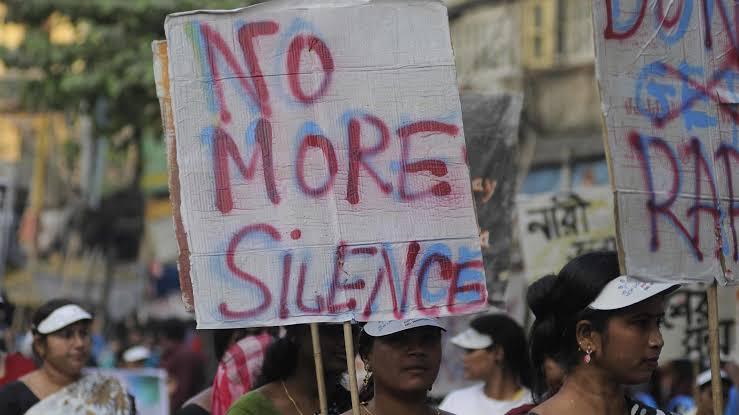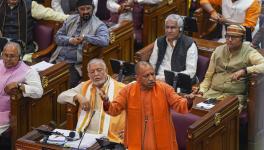Hyderabad: Death Penalty is No Cure for Rape Culture

We are still reeling from the nationwide shock over the rape and murder of a young veterinarian in Hyderabad. But in different parts of the country, women continue to be raped, murdered, burnt. After the Hyderabad incident, there are fresh calls from ordinary citizens and politicians to hang the rapists.
Just five days ago, prominent citizens including Jaya Bachchan, made passionate appeals in favour of lynching from within the institution where laws are supposed to be made, the Parliament. And just a few days later, on Friday morning, law-enforcers in Hyderabad announced that they have “encountered” the alleged rapists in Hyderabad.
Despite our never-ending bloodlust, death penalty is ineffective. It does not stop rapes and harms future victims.
Indians strongly believe that increasing the severity of the punishment will stop the crime. This cannot be further from the truth. In fact, it is the assurance of punishment, rather than its severity, that will stop crimes such as rape.
Fear of the death penalty will only incentivise rapists to murder their victims to prevent them from testifying. The fear of death penalty will motivate rapists to do everything they can to avoid the noose after committing rape.
Eight out of ten rapes are committed by someone known to the victim, if not nine, as some estimates claim. Among child and teen victims, 34% of rapists are family members and 59% are acquaintances. Both the victim and her relatives are unlikely to report a rape lest their ex-partners and relatives face the death penalty. The number of unreported rapes, already at a high, will increase manifold.
A higher power difference between a rapist and the victim increases the chances of retaliation with lawless impunity. Recently, a gang-rape survivor in Unnao, Uttar Pradesh, was set afire while she was on her way to a local court for a hearing in her case.
We must ask: why is death penalty is the first suggestion from both common people and politicians?
The answer is hidden in plain sight. People need an excuse to avoid addressing the uncomfortable root cause that they are collectively responsible for—rape culture. Our collective failure in addressing rape culture, which has led to rampant rapes, fuels our guilt and fear, and we project it into calls for the death penalty.
Low-range gender inequality have been ignored in India, and microaggressions against women have remained unchecked. That is how we have ended up with rape culture, which is a severe manifestation of violence against women. Once “minor” transgressions are allowed to pass, it creates a vicious cycle of growing support and excuses for incidents of greater severity.
To line up acts of violence against women on a scale of severity; the low-severity behaviours, despicable as they are—stalking, cat-calling, threats of suicide for unrequited love—are normalised to such an extent that we consider them a part of male courtship.
Successful movies such as Ranjhanaa glorify the hero when he threatens to and then actually attempts a wrist-cutting drama to “prove” his ironically undying love for the heroine. When she clings to him after his attempt, romantic background music affirms to young men and women in the audience that this is how courtship works. “Great movie, true love forever”, “awesome proposal scene”, “best scene so far”, some say.
Can we hang a Ranjhanaa for perpetuating rape culture? No. Instead, we celebrate his ‘love’.
Threats of suicide receive validation and subconsciously promote higher-severity incidents to be perpetrated on women. It’s a social proof that glorification of stalking and manipulation works to ‘get’ a girl.
In the movie Kabir Singh, the hero asks a woman to strip at knife-point and delivers kisses without consent while soft background music plays. Can we hang a Kabir Singh? No.
In real life, before murdering three people, including the woman who rejected him, Ashwani Kashyap uploaded a TikTok video with a dialogue straight from Kabir Singh: “Jo mera nahi ho sakta, use kisi aur ke hone kamauka nahi doonga—one I could not make mine will not be someone else’s either.”
If we cannot hang a Kabir Singh, we have no right to hang a Ashwani Kashyap.
Kabir Singh director Sandeep Reddy’s recent tweet is an example of our hypocrisy regarding our collective failure to address the low-range gender violence. People who clapped for and defended Kabir Singh are now calling for the death penalty!
Perhaps only in the face of a failed society, and a failed state, would death of rapists be a comforting thought. Politicians use death penalty as an excuse to fuel populist demands from their constituents. Hang a few rapists or encounter them and we can all celebrate our indulgence in “justice” and sleep peacefully...
And the next day, we will still catcall at women or girls and pinch their bottoms. We will still stare at breasts while speaking to them in offices and wonder if they ‘used their sexuality’ as a currency to move up the ladder. The woman alone will be judged for a transaction that involves two people.
Even when we tease, scold or insult our male friends, we use profanities that insult the honour of the women associated with them.
This is rape culture too. Even to insult another man, we attack women.
Even within this rape culture, there is discrimination. Who decides which rape case becomes national news? We all, including media houses, operate on the perfect victim and the perfect rapist narrative.
Class and caste privilege decide if you are a good victim or not. If the victim is a Rohingya Muslim, we shut down outrage by calling it politicisation. It is easy to believe that “rarest of the rare” categorisation should justify the death penalty. Who gets to decide which case is rarest of the rare for the victim? That which case is more heinous for which victim?
Soni Sori was brutally raped and tortured. There were hardly any calls for demanding death penalty for an Adivasi’s rapist. Recent cases of dalit women’s rape in southern parts of India are now out of sight, out of mind.
Caste, class, religion and power decide who is the perfect rapist for society to collectively hang.
When the rapist is powerful, people march to support the rapist, as happened in the Kathua rape case. When the rapist is a lorry driver or cleaner, the calls are to lynch them. They are happily portrayed as external delinquent members of the society, not representative of any fault of the more civilised society of the victim. When the rapist is a Muslim, right-winged fundamentalists, including politicians from ruling parties, communalise the issue.
Denial of rape culture fosters sexist ideas and behaviours and makes it easy for rapes to persist as an epidemic.
In the face of this denial, victim blaming and refusing to believe one when they chose to file a complaint is pervasive. In the Hyderabad rape case, the police even suggested that she must have eloped when her parents tried to file a missing person report.
The perfect victim is a dead one. We—the relatives, police, bystanders, social media trolls—only listen to and believe dead victims of rape. While she is alive, we deem her narrative false and malicious. This fuels rape culture too.
For every rape that goes unchecked, 10 more rapists receive the courage that they will never be caught, leave alone be hanged for their crimes.
Rape results from our society’s preoccupation with a woman’s sexuality, fertility, and labour. Any woman who chooses to steer away from the norms of the society set by men, is punished through sexual assault and rape.
We all harbour sexual harassers, assaulters and rapists among us, in our own families and workplaces. How many relatives and friends can we hang?
We empowered an entire generation of women, but we forgot to teach men how to deal with strong women. Can we hang an entire generation?
Yet another rape will happen and our political leaders promise “stringent measures,” without commenting on why Nirbhaya Funds remain grossly under-used.
It is high time we address institutional rape culture. The police must be penalised for every delay in action, and insensitivity instead of lauding them for encounters. The ruling BJP party has the highest number of politicians accused of rape. When the ruling party cannot do the bare minimum of dismissing the powerful rape accused, what will hanging selected rapists achieve?
Once again, it is not the severity of the punishment but an assurance of one that serves as a deterrence. We must address rape culture. We need to stop cultivating rapists.
Otherwise, we will end up making a scapegoat of a few individuals who get caught. After all, it is easy to hang a few people than accept our equal complicity in, and guilt for, the rapes taking place around us.
Sonam Mittal is a environmental and gender activist and co-founder of The Spoilt Modern Indian Woman, a Facebook collective on feminism. The views are personal.
Get the latest reports & analysis with people's perspective on Protests, movements & deep analytical videos, discussions of the current affairs in your Telegram app. Subscribe to NewsClick's Telegram channel & get Real-Time updates on stories, as they get published on our website.
























